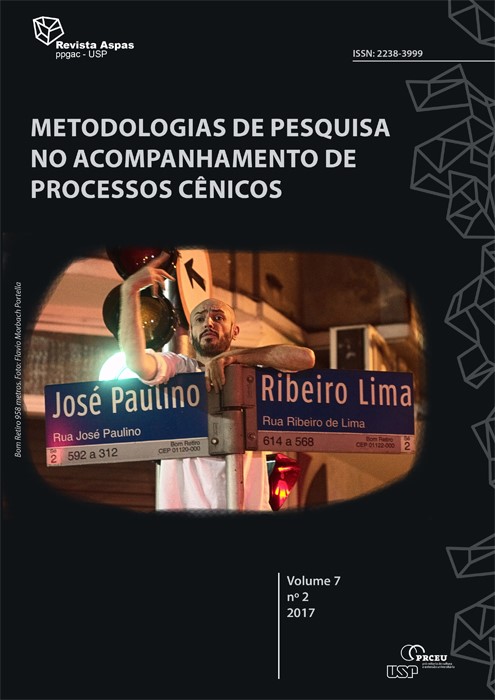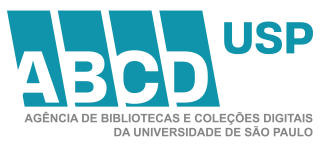Participant observation of the rehearsal process: practical considerations and ethical dilemmas
DOI:
https://doi.org/10.11606/issn.2238-3999.v7i2p10-26Keywords:
Performance studies, rehearsal studies, participant observation, collaborative theatre, ethnography.Abstract
The observation and analysis of rehearsal process as practised at the University of Sydney. Comparison with theatre genetics. Historical account of the development of the Sydney model based on collaboration with professional theatre artists. Goals of the research: enhanced appreciation of the mise-en-scène, insights into the processes of group creativity. Concepts and methodological approaches borrowed from ethnography applied to the study of rehearsal: field and fieldwork, participant observation/direct observation, group sociality, insiders and outsiders, paying attention to the words used, thick description. The article concludes with observations concerning creative agency in rehearsal practice and the nature of group creativity.Downloads
References
ATKINSON, P. Performance and rehearsal: the ethnographer at the opera. In: SEAL, C.; GOBO, G.; GUBBIUM, J.; SILVERMAN, D. (ed.). Qualitative research practice. London: Sage Publications, 2004. p. 94-106.
CLIFFORD, J. Introduction: partial truths. In: CLIFFORD, J.; MARCUS, G. (ed.). Writing culture: the poetics and politics of ethnography. Berkeley; London: University of California Press, 1986. p. 1-26.
______. The predicament of culture: twentieth century ethnography, literature and art. Cambridge: Harvard University Press, 1988.
CRAMPHORN, R. Professional Stocktaking Document. 1985. In: MAXWELL, I. (ed.). A raffish experiment: the selected writings of Rex Cramphorn. Sydney: Currency Press, 2009. p. 291.
GEERTZ, C. Thick description: toward an interpretive theory of culture. In: ______. The interpretation of cultures. New York: Basic Books, 1973. p. 3-30.
GOFFMAN, E. Frame analysis: an essay on the organisation of experience. Boston: Northeastern University Press, 1986.
KNOWLES, R. Reading the material theatre. Cambridge: Cambridge University Press, 2004.
MARSHALL, N. The producer and the play. London: Macdonald, 1957.
MCAULEY, G. Space in performance: making meaning in the theatre. Ann Arbor: University of Michigan Press, 1999.
MEAD, M. The art and technology of fieldwork. In: NAROLL, R.; COHEN, R. (ed.). A handbook of method in cultural anthropology. New York; London: Columbia University Press, 1973. p. 246-65.
Downloads
Published
Issue
Section
License
Copyright (c) 2018 Revista Aspas

This work is licensed under a Creative Commons Attribution 4.0 International License.
Whenever publishing material referring to the article published in the aSPAs Journal, the authors commits to mentioning such publication as follows:
“This article was originally published by aSPAs Journal volume (insert the volume), number (insert the number) in the year (insert the year) and can be accessed in: http://revistas.usp.br/aspas"







